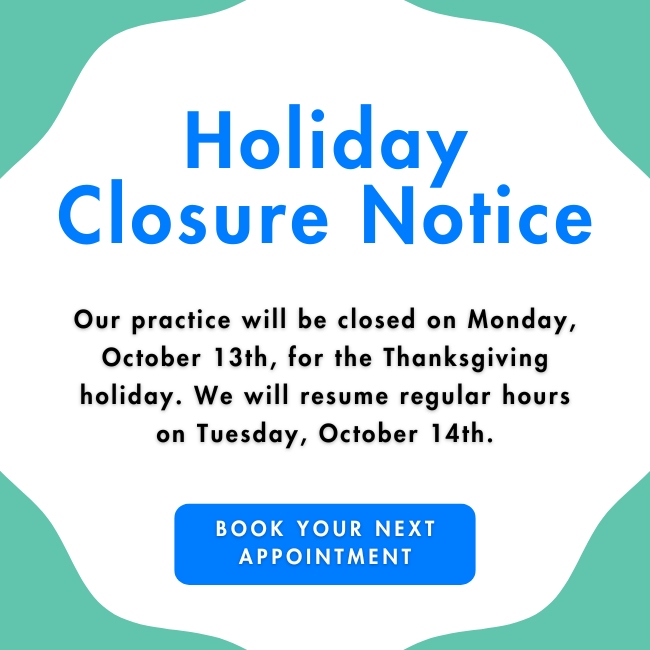Take your glasses off for a moment, and the world instantly blurs. It can feel like your eyesight is slipping away, but is it really getting worse, or just harder to manage without lenses? The topic is surrounded by myths, and we want to help you understand the facts about your overall eye health.
Not wearing your glasses won’t permanently harm your vision, but it can lead to uncomfortable side effects, such as eye strain and headaches. However, the story can be different for children, where proper eyewear is essential for healthy visual development.
What Glasses Actually Do
Think of glasses as a tool designed to fine-tune how you see. They work by bending light so it focuses correctly on your retina, the light-sensitive layer at the back of your eye that sends information to your brain. This simple correction is what allows you to see the world clearly and sharply.
It’s important to know that glasses correct refractive errors like nearsightedness or farsightedness only while you wear them. When you take them off, your vision simply returns to its natural, uncorrected state.
Why Does Vision Seem Worse When You Take Off Your Glasses?
If you feel like your eyesight is blurrier than ever when you remove your glasses, you’re not imagining it. Your brain adapts quickly to crisp vision. Once you get used to that clarity, the contrast makes your uncorrected vision seem even fuzzier, even though it hasn’t actually declined.
What Happens When You Skip Your Glasses?
For most adults, not wearing glasses won’t damage their eyes. But it can make life a lot less comfortable. Without lenses, your eyes have to strain to bring things into focus, which can lead to:
- Headaches
- Sore or tired eyes
- Blurry vision
- Constant squinting
These symptoms are signs that your eyes are working harder than they should. Wearing your glasses regularly can ease the strain and make everyday tasks, like reading, driving, or working on a computer, much easier.
Special Considerations for Children’s Vision
Children’s vision works a little differently. Their eyes and brains are still developing, and clear input is essential for healthy visual growth.
When kids skip glasses that have been prescribed for conditions like amblyopia (lazy eye) or significant refractive errors, it can interfere with that process. In some cases, it may even cause long-term vision problems. That’s why consistency with glasses is especially important for younger patients.
Clearing Up Common Myths
There’s a lot of misinformation out there about glasses and eye health. Let’s clear up a couple of the most common myths.
Myth: Wearing Glasses Makes Your Eyes Weaker
Not true. Glasses don’t change your eyes’ health or strength; they simply help you see clearly. If your prescription changes over time, it’s usually due to natural development or aging, not because your glasses made things worse.
Myth: You Can Train Your Eyes to Not Need Glasses
While some exercises (like vision therapy) can help with specific issues such as eye coordination, they can’t change the shape of your eye or correct refractive errors like nearsightedness. Glasses (or contact lenses) are still needed for clear vision.

What Actually Causes Your Eyesight to Change?
If glasses aren’t the culprit for vision changes, then what is? A few key factors are usually at play. Most of them are a normal part of life that affect everyone differently.
Natural Age & Development
Our eyes change as we grow and age, just like the rest of our bodies. Prescriptions often fluctuate during the teen years and tend to stabilize in early adulthood. Later in life, most people develop presbyopia, a condition that makes it hard to focus on things up close and requires reading glasses.
Lifestyle & Environmental Factors
Long hours spent in front of digital screens can contribute to eye strain and discomfort. It’s a good idea to follow the 20-20-20 rule: every 20 minutes, take a 20-second break to look at something at least 20 feet away. Some research also suggests that spending time outdoors may help slow the progression of nearsightedness in children.
Why Regular Eye Exams Matter
Even if you’re not worried about your prescription, routine eye exams are one of the best ways to keep your vision and eye health on track. They do more than check how clearly you see—they can also detect early signs of conditions like glaucoma, cataracts, or retinal problems.
Technology for Precise Care
Modern diagnostic technology enables us to obtain a detailed examination of all the structures within your eye. These tools help your optometrist gain a precise understanding of your vision needs.
Clear Vision, Comfortable Living
Not wearing your glasses might not make your vision worse, but it can certainly make your days less comfortable. Clear, comfortable vision helps you enjoy life to the fullest, from reading a book to taking in the beautiful Yukon scenery. It’s about more than just seeing—it’s about your quality of life.
Whether you have questions about eye strain, your child’s vision, or are just due for a check-up, professional guidance is key.At Northern Lights Optometry, our team is dedicated to your eye health. If you’re experiencing headaches, blurry vision, or just want peace of mind about your eyes, book an eye exam with us today. We’re here to help you see clearly.





